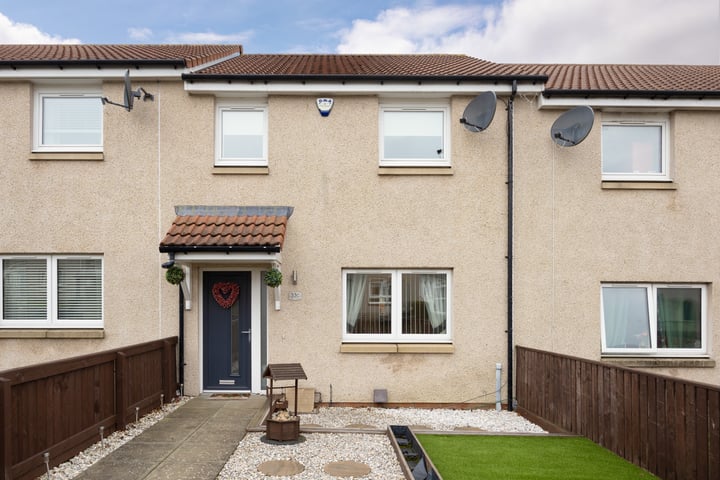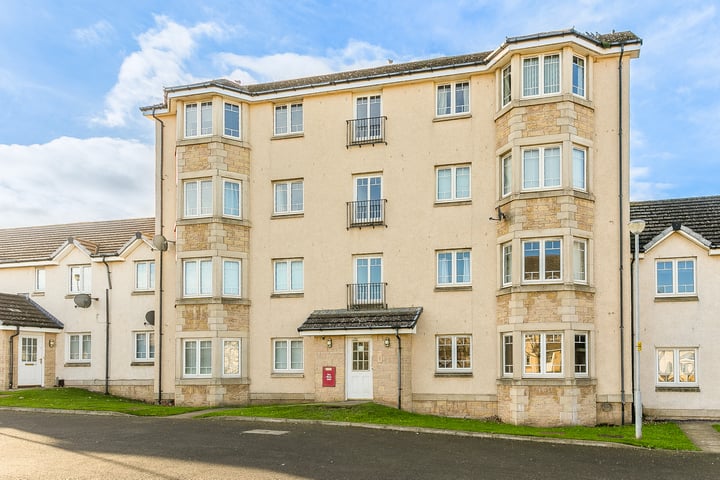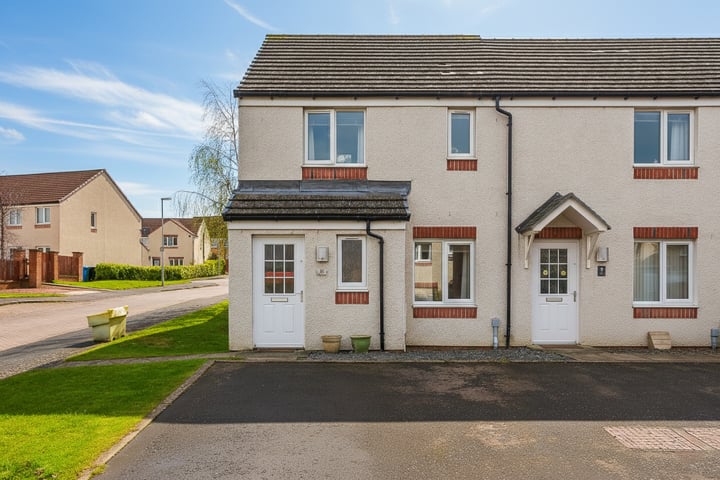Interest Rate Rises, Mortgage Rate Rises and Their Effect on the Property Market in Scotland – The Big Read
The UK Government’s recent “mini budget” turned-out to be the largest tax reduction exercise the UK has seen in the past 50 years. The lack of a fully-costed, independently-verified plan for how this was to be funded has caused the UK economy to descend into what some commentators are calling “a full-blown economic crisis”.
The purpose of this article is to focus on what this means for the Scottish property market and how this affects you. If this were simple, we’d post a Tweet. But it isn’t…! So grab a cup of tea and a biscuit and let’s get stuck in.
What JUST HAPPENED…?
On 23 September 2022, the Chancellor of the Exchequer, Kwasi Kwarteng, announced a “mini budget” with the stated aim of stimulating economic growth in the UK.
The “mini budget” included an announcement of a permanent reduction in the amount of Stamp Duty Land Tax (SDLT) that property buyers pay. However, this does not apply to Scotland. The Scottish Government will instead decide whether or not to reduce Land and Buildings Transaction Tax (LBTT) in a similar manner. Initial indications are that they will not.
Financial markets reacted badly to the “mini budget”. The Pound fell heavily against the dollar. The cost of borrowing for the UK Government shot-up dramatically. So-called “swap rates”, which underpin many lenders’ mortgage rates, have been volatile and have increased significantly.
Several UK mortgage lenders reacted this week by withdrawing all of their available mortgage products because they were completely unable to “price” their mortgages at a level that would return a required level of profit. When these products are relaunched, they will be at significantly higher interest rates. Other lenders “repriced” their existing mortgage products at much higher interest rates. Further incentives available to many borrowers, such as “free legals”, have been withdrawn by most lenders.
The Bank of England “base rate”, which was already rising, looks set to rise more rapidly than previously expected. A number of experts have now added an extra couple of percentage points to their predictions of how high the “base rate” will go in early 2023.
The Bank of England (BoE) has had to step-in, in an extraordinary way, to shore-up sentiment in the market.
For anyone with involvement in the UK property market, these events have been a shock.
The effect of all of these developments will affect different people in different ways. To try to make this article as useful as possible, it has been broken-down to focus-in on existing homeowners, landlords, prospective property buyers and property sellers to help you to skip to the section that most applies to you.
Existing Homeowners
Existing homeowners who are currently on a favorable mortgage interest rate are highly unlikely to achieve anything similar in the foreseeable future. Anyone on a “product” which expires in the next couple of years is in for a rocky ride when it comes to securing a new mortgage if they hope to achieve an affordable monthly repayment figure.
Rates which typically were 1.99% only a year ago are now sitting at 5.49% and this figure is only likely to increase in the coming months.
This of course will have an effect on affordability for some people who have stretched their finances in anticipation of mortgage rates staying similar to the point when they took out their mortgage.
Anyone unfortunate enough to be on a tracker or variable rate, including the Standard Variable Rate (SVR), is in for an immediate shock. As the Bank of England “base rate” goes up, it is likely that lenders will apply these increases to such mortgage interest rates with immediate effect.
As Scottish Widows confirmed to me earlier this week, the Standard Variable Rate (SVR) is set by the lender itself and is not capped by increases to the “base rate”. That allows lenders to potentially increase their SVR by more than the increase in the Bank of England base rate.
We expect that this will, unfortunately, lead to some homeowners finding their current properties unaffordable in coming months. This is likely to cause more people to have to sell for financial rather than lifestyle reasons.
How long do we expect to be living in a higher interest rate environment?
That is the million dollar question and one that the most experienced experts in the marketplace are clearly struggling with at the moment. We have had more than a decade of living in an incredibly low-interest rate environment but that is the exception rather than the norm. 5 Year Fixed mortgage rates are currently sitting at about the same interest rate as a 2 Year Fixed product. Lenders don’t seem to be anticipating any significant reduction in interest rates in the coming years.
In short, it looks like we are in this for the long-haul.
Landlords
Being a landlord has become increasingly expensive over the past few years. New regulations and required certifications mean that, even without a mortgage, the cost of being a landlord is increasing year-on-year.
For landlords with a mortgage, the picture has become particularly challenging over the last few years. Landlords used to be able to subtract the cost of mortgage interest from the rent that they receive. The ability to deduct mortgage interest from the rent received has been tapered-off and removed in the past few years. This means that landlords are now taxed on the full amount of the rent received, whether or not they are making any profit. This has led to significant pressure on smaller, private sector landlords.
A significant proportion of the rental stock available in Scotland is in the hands of small landlords who own small portfolios or properties, or even one property.
As interest rates rise, these landlords are more likely to find themselves in a position where mortgage interest and the other costs of owning the property are more than the rent that they receive. In spite of that, they will have to pay a substantial amount of income tax on properties that are causing them to lose money.
Add to that the fact that tenants are more likely to be in financial difficulties in coming months because of general increases in the cost of living, making them more likely than before to default on rent payments. This creates a toxic combination for landlords who are paying high mortgage interest rates and receiving no rent.
The Scottish Government recently announced a cap on rents to help people with the increased cost of living. This means that landlords will not be able to pass the increased costs of borrowing onto their tenants.
I would foresee that a number of landlords are likely to start selling these investment properties and that we will see an increasing number of ex-rental properties hitting the market in the coming weeks and months. Most of these will be bought by owner-occupiers which reduces the amount of available rental stock.
This will, in turn, push rents up. For the time being, that might be controlled by Scottish Government controls, but this surely cannot last forever. When these controls are eventually removed, the market will catch up and the affordability gap for renters will be even greater.
Homebuyers
Scottish property buyers have benefited from a very low-interest rate environment in recent years. That has certainly now come to an end.
Some of the mortgage interest rates currently on offer are at levels not seen for nearly two decades and all indications are that these figures are likely to increase. Add to this the fact that house prices have exploded in recent years and this creates a potentially difficult environment for buyers paying higher interest rates on more expensive properties. Some buyers who had agreed a purchase on the basis of an Agreement in Principle from their lender will currently find themselves without funding if their full mortgage application had not been submitted.
All buyers, even if they can afford monthly payments, will be paying more for their mortgages than if they had taken-out a mortgage just a few weeks ago.
In spite of this, there is a possibility that recent events might offer a ray of hope for some buyers. Will current events reduce the number of property buyers in the market? Possibly. It certainly will reduce the number of people who have recently been looking to buy a property. And at the same time it might open the door to other buyers who have been waiting for the market to cold-down a bit.
For the last few years, the Scottish property market has been a sellers market. For many buyers in Scotland, with its system of Offers Over and Closing Dates, it has been a frustrating few years of unsuccessfully bidding against several other buyers at several Closing Dates. For these people, any reduction in the level of competition between buyers will make it more likely that they are able to secure their dream home.
Another positive for buyers might be a reduction in the percentage that people are paying above the Home Report valuation.
We have become used to an environment where many properties sell for a figure well in excess of the Home Report valuation. We have commonly seen examples of people paying 10%, 20% or even 30% over the Home Report valuation. You can only borrow a percentage of the Home Report valuation, not the eventual purchase price, so any sum of money paid over and above the Home Report valuation needs to be funded solely from cash. If we see a little less competition, and people paying less over-and-above the Home Report valuation at Closing Dates, this might give buyers more money to put towards their deposit, allowing them to reducing the amount that they need to borrow.
For anyone considering renting in the meantime rather than buying, this nevertheless might not be the best move for them. Rents remain high, in spite of Scottish Government intervention. Finding a rental property is very challenging and, of course, you can’t decorate or in some cases furnish it yourself. For some time now, it has been significantly cheaper on a monthly basis to pay the mortgage on a property rather than to rent it. It would always have taken a very significant increase in interest payments for that picture to change.
As an example, a £200,000 mortgage at 7% APR results in an annual interest payment of £14,000. That’s the equivalent of less than £1,200 of interest payments per month. Anyone considering renting, if they have a sufficient deposit to allow them to buy a similar home, will have to weigh-up the benefits of ownership versus paying rent and, for many, buying a property might still be the more attractive option even as interest rates edge upwards.
Property Sellers
If you are thinking of selling, what effect will recent events have on property prices or the likelihood of securing a buyer for your property?
First things first, it’s important to keep a level of perspective here. Even if there is a slight “softening” in prices, which is a handy euphemism for “a drop in prices”, this need not signal the end of the world for property sellers. Prices have grown across the board at a rate of over 10% per annum for the past couple of years. Unless you bought your property 6 months ago, even a fairly significant drop from the peak of the market represents a good return on investment. And, of course, if you are buying something else then it will be affected by the same market conditions.
Will recent events reduce the number of buyers in the marketplace? The answer, quite simply, has to be “yes”. It may be that some buyers return to the marketplace who have been sitting back for a while, not wanting to be drawn into bidding wars at Closing Dates. However, I would absolutely predict that reduced affordability across the board must reduce the number of buyers in the marketplace.
The other factor that is likely to affect property prices is an increase in supply of second-hand properties coming to the market. If that happens, assuming everything else remains equal, it would typically slow-down property price growth from its current high levels. Will supply to the market increase? That depends on the confidence of property sellers or their desire to sell at what they perceive might be the “peak” of the market. Different market sectors may be more affected by this than others. If landlords find that interest rates are causing them to make losses, this could affect the market for flats disproportionately compared to family homes.
Does all of this mean that you will not be able to get a good price for your sale? My view on this is simply, “absolutely not”.
We have seen an extraordinary amount of demand for property in the last couple of years, particularly following the end of the first Covid-19 lockdown. Properties have commonly seen over 100 viewings in a one or two week period after coming to the market. We have seen 30, 40 and even 50 Notes of Interest being submitted on these properties and Closing Dates with 20, 30 or 40 offers submitted. This of course drives prices rapidly upwards. However, it absolutely is not necessary to achieve a sale at a good price.
House price growth may slow with less demand, but that does not mean that house prices will fall. It’s important to note that this is not 2008: the supply of funding to property buyers has not been cut-off, it’s just more expensive than it was.
Family homes remain in very short supply and this sector is likely to remain robust. Even in 2008, during the last financial crisis, when property prices were dropping in other sectors of the property market they continued to grow in the family home sector. Family home prices likely remain very strong due to exceptional demand and the fact that people are often buying these properties because they feel that they have to rather than simply because they want to.
First time buyers who have been saving-up towards a deposit are likely to now find themselves requiring a bigger deposit to secure an affordable rate as well as higher repayments. For properties targeted at this particular market, we are likely to see a sharper drop in demand. We might see property price growth slow more in these areas than in others. However, as above, this does not mean that prices will necessarily drop. If prices do soften slightly, it is against a backdrop of huge increases in recent years, so most sellers will be very well insulated against any such price movement.
Conclusion
My prediction is that the recent increase in mortgage interest rates will cause a level of equilibrium to return to a Scottish property market that has been overheated for the past few years. The last property market “correction” was in 2008/09. With the property market generally operating in 10, or at most 12, year cycles we are long overdue a correction.
Supply of properties coming to the second-hand market has been severely restricted in recent years. This, combined with various government incentives and historically low borrowing costs, have caused a boom in prices in recent years. However, it has also come at the cost of property buyers being able to move up the ladder and to secure their dream home.
In any market conditions, there will be winners and losers. Recent events will be bad news for a lot of people, including existing homeowners looking to refinance. I know, because I am one of them! So I extend empathy and sympathy to anyone in that position.
The effect on the wider market, however, might actually be more positive than the initial, sharp shock that we are experiencing. However, I have for some time said that the Scottish property market is overheated and artificially inflated. A more balanced market, with more supply to the market and a little less demand, is probably better for everyone in the longer term.
Thinking of Selling Your Property?
Fill in our free online home valuation form here
Call us on 0345 646 0208 (Option 1)
or email [email protected] to organise a free valuation of your home or to get a full, transparent breakdown of the costs of selling your home.
Thinking of Buying?
Get a quote for buying online here
Call us on 0345 646 0208 (Option 2)
or email [email protected], and we’ll be happy to help.






Leave a Reply